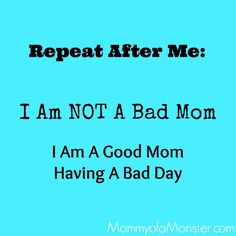|
There is something about being in a steel tube hurtling at 100s of miles per hour, up in the air at over 35,000 feet. Air travel is significantly safer, at least statistically speaking, than most other modes of travel. For the most part, other than the take-off and landing periods, it feels almost like nothing is going on. We might just go about the day, eating peanuts, watching a movie, enjoying the airline food or taking a nap, not remembering that we are indeed a mile high in the air, in a closed container, hurtling through at rocket speed. If we take the time to think about it, we probably will have a few moments of anxiety till we reason with ourselves that it really is quite safe, that we are being taken care of by professionals and that there is absolutely no reason to worry at all and that it really is OK to just go back to enjoying that book or whatever else.
What does air travel have to do with love or relationships, you might ask. There is, of course, the oxygen mask warning that every flight mandatorily talks about before take-off: In the unlikely event of an emergency and cabin pressure dropping, oxygen masks will drop from just above your seat, to pull one and put over your face, tug on it to get the oxygen flowing and breathe normally. And then, there is the kicker: put on your own mask before assisting any one else, and that includes children and your beloved. That is of course great advice for any of us on self-care first. Let’s look beyond that and consider what is it that triggers the oxygen masks falling in the first place. It is the loss of cabin pressure. There is an optimum amount of pressure that is needed to be maintained for passenger comfort, for everyone to be able to breathe normally, feel comfortable with the air temperature and just be OK. If you think about it, relationships are much like flights. They are wholly improbable events that somehow magically occur every day for millions and millions of us. At the outset, it feels absurd to think that two people can actually stay together for years and years, hurtling through careers and society at breakneck speed, staying afloat through turbulent air pockets and be calm and relaxed right through. And yet, it seems to happen all the time, and quite successfully at that. What is that cabin pressure that couples bring upon themselves to maintain that sense of comfort in the face of fairly hostile environment? What keeps relationships from crashing down? We may not often realize it, but relationships need to have that bit of healthy pressure being maintained. Just the right level of expectations, regard and respect. Too much and it implodes. Too little and the whole thing drops, and it is a “Put on your own oxygen mask” situation of each for themselves first. Enjoy the flight. Keep the pressure on. As written for and published in The New Indian Express  Mother's Day was a few days ago and we have been thinking about parenting in general, and motherhood in specific. The idea of 'Mother' is such a culturally loaded one, no matter what culture. Mothers are supposed to always be up and about, care deeply, cook and clean and dust and mop, and go to work, and everything else. It really could be such a pressure. What happens to those who find motherhood quite hard? I am thinking of mothers who go through post-partum depression, For many, the pressure to be a 'good mother' is so severe on top of their depression, with relatives and others commenting on them being 'weak' or 'uncaring' that makes it hard for them to seek help, and that leaves them vulnerable to chronic depression. I am also thinking of women who find it hard to enter motherhood, or those who do not wish for motherhood for themselves - and the degrees of emotional turmoil they might go through. Even otherwise, for mothers well into motherhood, trying to balance their different roles as women, spouses, working women, housekeepers on top of being mothers becomes really hard. The pressure to be good at everything means that any small error of judgement on the child's part, say if the child bit another in the sand pit, or was caught sneaking a smoke outside school, gets a sharp reaction, and the disapproval falls squarely on the mother's shoulders. Disapproving eyes pass judgement that 'she was too busy at her job that she failed at her "real" job'. In India, as in much of the rest of the world, child care is considered primarily the women's job. An involved father is lauded, and a not-so-involved one forgiven, but no such luxury of lenience for the mother though. At the work-space too, maternity often limits career options, and often this leads to very capable women leaving the workforce for years if not for good. Sometimes, it leaves the woman, proud and happy as she is in her motherhood, angry and upset at the workplace, stressed about it, and perhaps, frustrated at her struggles to reach her full working potential. The point is: What is Mother's Day about? Should it really be about celebrating the 'super-woman' status of mothers, or can it also be about challenging our collective consciousness on our expectation that mothers must be super-human? Can we look at the pressures and stresses that mothers go through, and actually make it easier for mothers? Not merely by getting them breakfast and a bunch of roses, but to look at ourselves, the roles we play and the systems we have to help women through motherhood without needing them to be anything more than human. |
InnerSight BloggersAjanta, Mahesh and other InnerSight counsellors and guest contributors are happy to share their thoughts here. Categories
All
Archives
September 2020
|

 RSS Feed
RSS Feed